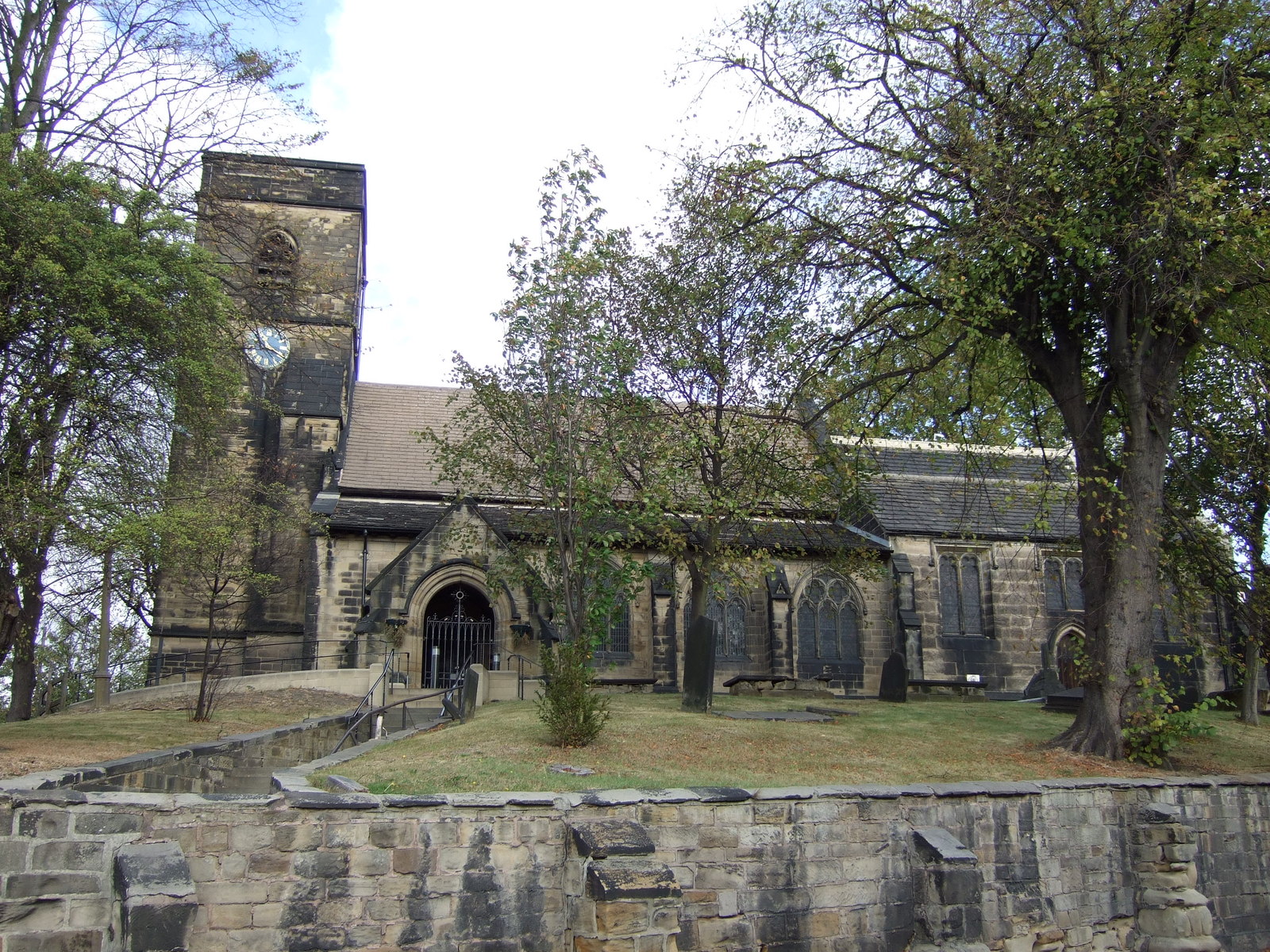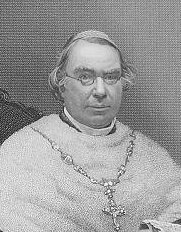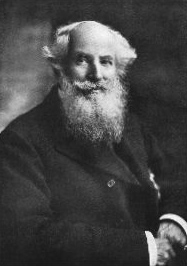|
Edward Peacock (antiquary)
Edward Peacock (22 December 1831 in Hemsworth''Men of the time'', 1875 – 31 March 1915'Obituary: Edward Peacock', ''Notes and Queries'', Second series XI, 10 April 1915, 292) was an English antiquarian and novelist. Biography Edward Peacock, the only son of the agriculturalist Edward Shaw Peacock (1793–1861), of Bottesford Manor, near Brigg, Lincolnshire,''The Catholic Who's Who & Yearbook'', 1910''Lincolnshire at the opening of the 20th century'', 1907 was educated by private tutors. Influenced by John Henry Newman, he converted to Catholicism as a young man. In 1853 he married Lucy Anne (died 1887), daughter of John S. Weatherall of New York City, a Captain in the United States Navy; they had seven children- their son, Max, and daughter, Mabel Peacock, also published works on the folklore of Lincolnshire. He lived at Bottesford Manor and Kirton-in-Lindsey, and in 1869 was appointed Justice of the Peace for the Parts of Lindsey. Their son Adrian was a clergyman and ecologist. ... [...More Info...] [...Related Items...] OR: [Wikipedia] [Google] [Baidu] |
Hemsworth
Hemsworth is a town and civil parishes in England, civil parish in the City of Wakefield, West Yorkshire, England. Historic counties of England, Historically within the West Riding of Yorkshire and had a population of 13,311 at the 2001 census, with it increasing to 13,533 at the 2011 Census. History While Hemsworth's recent history and reputation are dominated by the coal mining industry that developed in the latter part of the nineteenth century, it had long existed as an agricultural village. Hemsworth, meaning “Hymel’s enclosure” is mentioned in Domesday as Hemeleswrde and in the twelfth century as Hymelswrde. Into the Middle Ages it was a township in the Staincross Wapentake, Wapentake of Staincross and is also thought to have been in the honour of Pontefract, honour, or feudal barony, of Pontefract. From the Middle Ages to Tudor times it would have seen little change to the manorial features, open fields, woods, commons, enclosed holdings, manor house, scattered ... [...More Info...] [...Related Items...] OR: [Wikipedia] [Google] [Baidu] |
Royal Anthropological Institute Of Great Britain And Ireland
The Royal Anthropological Institute of Great Britain and Ireland (RAI) is a long-established anthropological organisation, and Learned Society, with a global membership. Its remit includes all the component fields of anthropology, such as biological anthropology, evolutionary anthropology, social anthropology, cultural anthropology, visual anthropology and medical anthropology, as well as sub-specialisms within these, and interests shared with neighbouring disciplines such as human genetics, archaeology and linguistics. It seeks to combine a tradition of scholarship with services to anthropologists, including students. The RAI promotes the public understanding of anthropology, as well as the contribution anthropology can make to public affairs and social issues. It includes within its constituency not only academic anthropologists, but also those with a general interest in the subject, and those trained in anthropology who work in other fields. History The institute's fellows a ... [...More Info...] [...Related Items...] OR: [Wikipedia] [Google] [Baidu] |
Lost Work
A lost work is a document, literary work, or piece of multimedia produced some time in the past, of which no surviving copies are known to exist. It can only be known through reference. This term most commonly applies to works from the classical world, although it is increasingly used in relation to modern works. A work may be lost to history through the destruction of an original manuscript and all later copies. Works—or, commonly, small fragments of works—have survived by being found by archaeologists during investigations, or accidentally by anybody, such as, for example, the Nag Hammadi library scrolls. Works also survived when they were reused as bookbinding materials, quoted or included in other works, or as palimpsests, where an original document is imperfectly erased so the substrate on which it was written can be reused. The discovery, in 1822, of Cicero's ''De re publica'' was one of the first major recoveries of a lost ancient text from a palimpsest. Another famous ... [...More Info...] [...Related Items...] OR: [Wikipedia] [Google] [Baidu] |
Oxford English Dictionary
The ''Oxford English Dictionary'' (''OED'') is the first and foundational historical dictionary of the English language, published by Oxford University Press (OUP). It traces the historical development of the English language, providing a comprehensive resource to scholars and academic researchers, as well as describing usage in its many variations throughout the world. Work began on the dictionary in 1857, but it was only in 1884 that it began to be published in unbound fascicles as work continued on the project, under the name of ''A New English Dictionary on Historical Principles; Founded Mainly on the Materials Collected by The Philological Society''. In 1895, the title ''The Oxford English Dictionary'' was first used unofficially on the covers of the series, and in 1928 the full dictionary was republished in 10 bound volumes. In 1933, the title ''The Oxford English Dictionary'' fully replaced the former name in all occurrences in its reprinting as 12 volumes with a one-v ... [...More Info...] [...Related Items...] OR: [Wikipedia] [Google] [Baidu] |
English Civil War
The English Civil War (1642–1651) was a series of civil wars and political machinations between Parliamentarians (" Roundheads") and Royalists led by Charles I ("Cavaliers"), mainly over the manner of England's governance and issues of religious freedom. It was part of the wider Wars of the Three Kingdoms. The first (1642–1646) and second (1648–1649) wars pitted the supporters of King Charles I against the supporters of the Long Parliament, while the third (1649–1651) saw fighting between supporters of King Charles II and supporters of the Rump Parliament. The wars also involved the Scottish Covenanters and Irish Confederates. The war ended with Parliamentarian victory at the Battle of Worcester on 3 September 1651. Unlike other civil wars in England, which were mainly fought over who should rule, these conflicts were also concerned with how the three Kingdoms of England, Scotland and Ireland should be governed. The outcome was threefold: the trial of and ... [...More Info...] [...Related Items...] OR: [Wikipedia] [Google] [Baidu] |
Dublin Review (Catholic Periodical)
The ''Dublin Review'' was a Catholic periodical founded in 1836 by Michael Joseph Quin, Cardinal Nicholas Wiseman and Daniel O'Connell. The fame of the "Edinburgh Review" suggested a territorial title, and Dublin was chosen as a great Catholic centre, though from the first it was edited and published in London. History Quin had the original idea for the new journal, soon persuading Wiseman to lend his support, and next enlisting O'Connell whose Catholic Emancipation campaign he admired. Of its first beginnings Cardinal Wiseman wrote: "It was in 1836 that the idea of commencing a Catholic Quarterly was first conceived by the late learned and excellent Mr. Quin, who applied to the illustrious O'Connell and myself to join in the undertaking". Quin became the editor and chief contributor, writing five articles in the first number and four in the second. But the enterprise was not remunerative. After two numbers he resigned the editorship, being unable to devote so much time and trou ... [...More Info...] [...Related Items...] OR: [Wikipedia] [Google] [Baidu] |
Athenaeum (British Magazine)
The ''Athenæum'' was a British literary magazine published in London, England, from 1828 to 1921. Foundation Initiated in 1828 by James Silk Buckingham, it was sold within a few weeks to Frederick Denison Maurice, Frederick Maurice and John Sterling (author), John Sterling, who failed to make it profitable. In 1829, Charles Wentworth Dilke (Dilke the Elder), Charles Wentworth Dilke became part proprietor and editor; he greatly extended the influence of the magazine. In 1846, he resigned the editorship and assumed that of the ''Daily News (London), Daily News'' of London, but contributed a series of notable articles to the ''Athenaeum''. The poet and critic Thomas Kibble Hervey succeeded Dilke as editor and served from 1846 until his resignation due to ill health in 1853. Historian and traveller William Hepworth Dixon succeeded Hervey in 1853, and remained editor until 1869. Contributors George Darley was a staff critic during the early years, and Gerald Massey contributed many l ... [...More Info...] [...Related Items...] OR: [Wikipedia] [Google] [Baidu] |
Notes And Queries
''Notes and Queries'', also styled ''Notes & Queries'', is a long-running quarterly scholarly journal that publishes short articles related to " English language and literature, lexicography, history, and scholarly antiquarianism".From the inner sleeve of all modern issues of ''Notes and Queries''. Its emphasis is on "the factual rather than the speculative". The journal has a long history, having been established in 1849 in London;''Notes and Queries'', Series 1, Volume 1, Nov 1849 - May 1850 via it is now published by |
Royal Archaeological Institute
The Royal Archaeological Institute (RAI) is a learned society, established in 1844, with interests in all aspects of the archaeological, architectural and landscape history of the British Isles. Membership is open to all with an interest in these areas. Activities One of the institute's principal activities is the publication of the ''Archaeological Journal'', an annual peer-reviewed journal containing reports of archaeological and architectural survey and fieldwork on sites and monuments of all periods, and syntheses and overviews of similar work throughout the British Isles. It also hosts lectures and seminars, and both sponsors and participates in field trips to archaeological sites and landscapes. It works in cooperation with other archaeological bodies and societies. A programme of monthly lectures is held from October to May at Burlington House, Piccadilly, London. Presidents The following have served as presidents of the institute: See also * Society of Antiquaries of L ... [...More Info...] [...Related Items...] OR: [Wikipedia] [Google] [Baidu] |
Proceedings Of The Society Of Antiquaries
In academia and librarianship, conference proceedings is a collection of academic papers published in the context of an academic conference or workshop. Conference proceedings typically contain the contributions made by researchers at the conference. They are the written record of the work that is presented to fellow researchers. In many fields, they are published as supplements to academic journals; in some, they are considered the main dissemination route; in others they may be considered grey literature. They are usually distributed in printed or electronic volumes, either before the conference opens or after it has closed. A less common, broader meaning of proceedings are the acts and happenings of an academic field, a learned society. For example, the title of the ''Acta Crystallographica'' journals is New Latin for "Proceedings in Crystallography"; the ''Proceedings of the National Academy of Sciences of the United States of America'' is the main journal of that academy. Sc ... [...More Info...] [...Related Items...] OR: [Wikipedia] [Google] [Baidu] |
Archaeologia (London)
Archaeologia or Archæologia may refer to: *''Archaeologia Cambrensis'', an archaeological and historical scholarly journal, published annually in Wales by the Cambrian Archaeological Association, containing excavation reports, book reviews, and historical essays. It also includes society notes and accounts of field visits *''Archaeologia Cantiana The Kent Archaeological Society was founded in 1857 to promote the study and publication of archaeology and history, especially that pertaining to the ancient county of Kent in England. This includes the modern administrative county as well as area ...'', an annual journal published by the Kent Archaeological Society on the archaeology and history of Kent * ''Archaeologia'' (London), an international journal published by the Society of Antiquaries of London *'' Archaeologia Scotica: Transactions of the Society of Antiquaries of Scotland'' *'' Archaeologia Polona'', a journal published in English annually since 1958 by the Institute of ... [...More Info...] [...Related Items...] OR: [Wikipedia] [Google] [Baidu] |
New English Dictionary
The ''Oxford English Dictionary'' (''OED'') is the first and foundational historical dictionary of the English language, published by Oxford University Press (OUP). It traces the historical development of the English language, providing a comprehensive resource to scholars and academic researchers, as well as describing usage in its many variations throughout the world. Work began on the dictionary in 1857, but it was only in 1884 that it began to be published in unbound fascicles as work continued on the project, under the name of ''A New English Dictionary on Historical Principles; Founded Mainly on the Materials Collected by The Philological Society''. In 1895, the title ''The Oxford English Dictionary'' was first used unofficially on the covers of the series, and in 1928 the full dictionary was republished in 10 bound volumes. In 1933, the title ''The Oxford English Dictionary'' fully replaced the former name in all occurrences in its reprinting as 12 volumes with a one-v ... [...More Info...] [...Related Items...] OR: [Wikipedia] [Google] [Baidu] |




